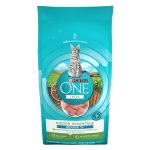As our feline friends age, their dietary needs change dramatically. Just like humans, elderly cats require a special diet to maintain their health and quality of life. In fact, a well-balanced diet can make all the difference in extending their golden years.
The Importance of Proper Nutrition for Elderly Cats
As cats age, they become more prone to certain health issues such as kidney disease, arthritis, and dental problems. A nutritionally balanced diet can help alleviate these symptoms and even slow down the progression of some diseases. The key is finding the right food that meets their unique needs.
Aging Cats Need More Than Just Kibble
Elderly cats require a higher caloric intake to maintain their weight, as their metabolism slows down with age. They also need more protein to support muscle mass and joint health. Additionally, their kidneys may not be able to process certain nutrients as efficiently, making it crucial to choose a food that is gentle on the kidneys.
In this blog post, we’ll explore the best foods for elderly cats, taking into account their specific nutritional requirements and common health issues. Whether your cat is nearing old age or you’re looking for preventative measures, we’ll provide valuable insights to help you make informed decisions about their diet.
Elderly cats require a special diet that takes into account their unique nutritional needs and health concerns. As we explored earlier, older cats need more calories, protein, and specific nutrients to maintain their weight, muscle mass, and joint health. In this section, we’ll delve deeper into the best foods for elderly cats, focusing on ingredients, nutrient profiles, and expert recommendations.
Key Ingredients for Elderly Cat Food
A high-quality food for elderly cats should include certain key ingredients that cater to their specific needs. These include:
- High-protein sources like chicken, salmon, or beef to support muscle mass and joint health.
- Fiber-rich ingredients like whole grains, fruits, and vegetables to promote digestive health.
- Adequate levels of omega-3 fatty acids from fish oil or flaxseed to reduce inflammation and support heart health.
- Prebiotics and probiotics to maintain a healthy gut microbiome.
- Avoidance of fillers, by-products, and artificial preservatives that can exacerbate age-related health issues.
Nutrient Profiles for Elderly Cats
A well-balanced diet for elderly cats should also provide a specific nutrient profile. This includes:
- High-quality protein (22-25% on a dry matter basis) to support muscle mass and joint health.
- Adequate levels of vitamins A, D, E, K, and B12 for overall health and immune function.
- Choline and taurine to support heart and eye health.
Experts recommend foods that meet these nutritional requirements. For example, the American Animal Hospital Association (AAHA) suggests a diet rich in protein, moderate in fat, and low in carbohydrates for elderly cats.
Source: AAHABy considering these key ingredients, nutrient profiles, and expert recommendations, you can make informed decisions about your elderly cat’s diet. In our next section, we’ll explore the best food options for senior cats, including dry and wet foods, and offer some tips on how to transition to a new diet.
Get Expert Advice on Your Elderly Cat’s Nutrition
Our team of medical and health experts is here to help you navigate the best food options for your elderly cat. Don’t hesitate to reach out!
Consult with a Medical & Health ExpertIn this blog post, we’ve explored the best foods for elderly cats, considering their unique nutritional requirements and common health issues that arise with age. To recap, here are the key points:
- Elderly cats require a higher caloric intake to maintain their weight
- They need more protein to support muscle mass and joint health
- Their kidneys may not process certain nutrients efficiently, making it crucial to choose a food that is gentle on the kidneys
Sourcing the right food for your elderly cat can make all the difference in extending their golden years. By providing them with a nutritionally balanced diet, you’ll be supporting their overall health and well-being.
Conclusion
In conclusion, when it comes to feeding your elderly cat, it’s essential to prioritize their unique needs and health issues. By doing so, you’ll be giving them the best chance at a happy and healthy life as they enter old age. Remember, every year counts, and with the right food, you can make those years truly special for your feline friend.
I Just Adore You Asking for More: In this uplifting piece, discover why asking for more is not only okay but also essential to personal growth and success.
Frequent Urination: A Warning Sign of High Blood Sugar: Are you experiencing frequent trips to the bathroom? Find out how this seemingly harmless symptom can be a red flag for high blood sugar levels and what you can do about it.


